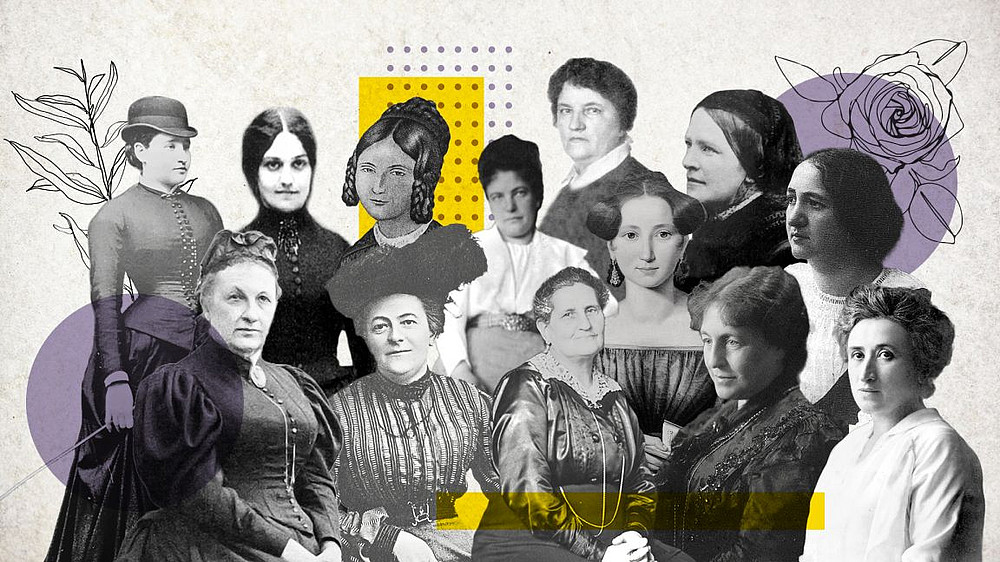The project focuses on women who were politically active between 1848 and 1933 within the first women’s rights movements in the German-speaking world and who translated texts with political or socio-critical content into German. The main research goals are:
- Translation shall be examined as a strategy that enabled women at the time to participate in politics or to expand and solidify their scope for political action.
- It shall be analyzed what kind of functions and forms the women’s translation work assumed in the transnational exchange of women’s political demands, achievements and political practices.
- The development of the first organized women’s rights movements (1848-1933) shall be traced against the background of multiple translation processes, thereby further disrupting the notion of nationally defined feminisms in the late 19th and early 20th centuries (see also Gehmacher 2019 and Bracke et al. 2021).

The theoretical frame of reference is primarily based on feminist thinking about the “public” (e.g. Wischermann 2003) and the “political” (Appelt 1994, Sauer, 2001). In line with such thinking, we do not view politics exclusively in terms of the state and its institutions. Rather, we also consider as “political” those activities which have largely been understood as “everyday” and “private” practices in history, such as translating. Finally, Pierre Bourdieu’s (1997, 2001) theory of social and cultural reproduction as well as Ruth Wodak’s (2001) critical discourse analysis also serve as important tools to analyze the “activist” and “ideological” dimensions of women’s translation practices in the 19th and early 20th centuries.
Duration | 03.07.2023-02.07.2026 |
Funding | FWF |
Grant amount | € 152.879,37 |
Unit | |
Profile area Uni Graz |
|
Principal investigator | |
Project staff | Julia Kölbl, BA. MA. |
Project homepage | translationswissenschaft.uni-graz.at/de/unsere-forschung/forschungsprojekte/ |